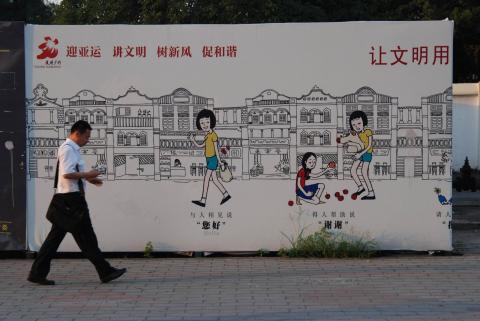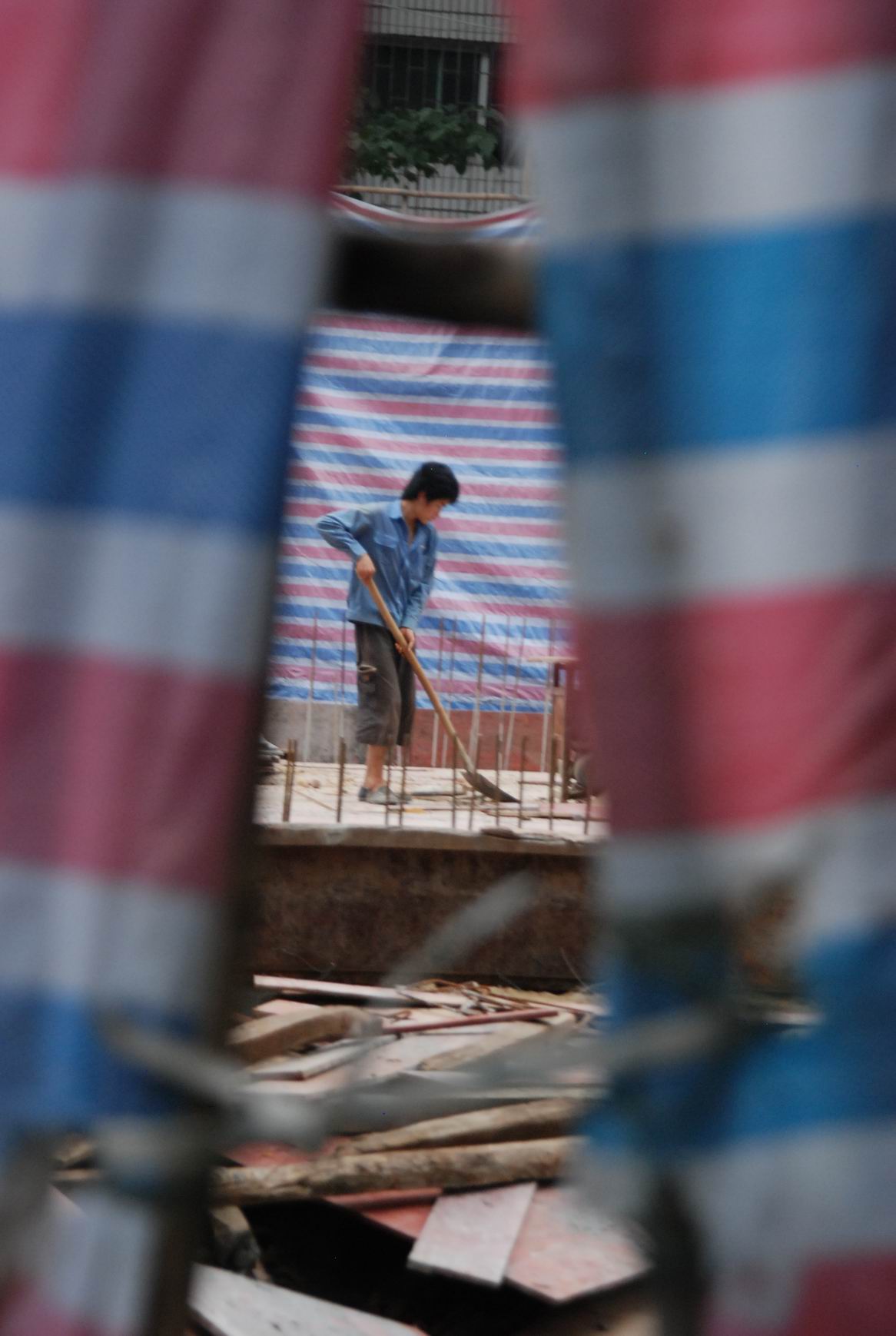Beijing’s bid to ‘civilise’ Guangzhou is rudely rebuked

The 16th Asian Games are now underway in the southern Chinese metropolis of Guangzhou. This is the second largest multi-sport event after the Olympics and hugely popular throughout the continent. By Norma Costello.
In the lead up to the games, the Guangdong government launched a campaign to “civilise” city dwellers with the slogan ‘I love Guangzhou’. It’s a hard sell and not without good reason.
[Pictured: A 'Civilize Guangzhou' wall. Below: Building the Asian Games]
This southern Chinese metropolis regularly features on the expat hardship post list -last year it rode in at number 12 after Bogota, Lagos and Riyhad.
Guangzhou is China’s manufacturing Mecca and a huge social gap exists between the young hipsters shopping in trendy Tianhe and the migrant factory workers spread throughout the city.
The city's close proximity to the new economic zone Shenzhen ensure a regular influx of toxic fumes and poor rural migrants but this shabby image is nothing new. Despite its ancient place of pride as Canton, Guangzhou was always looked down on throughout history by the more "regal" north for its base, money and trade focused ideology.

It is this fast-moving "get ahead" mentality that can make Guangzhou residents seem incredibly rude to outsiders - it is not impolite to push people out of the way on the street, or out of taxis, or anywhere.
It is quite common to see busy mothers holding their children up to defecate on the streets if they are in a rush. This type of behavior coupled with the poor provincial immigrants who have little or no basic hygiene knowledge make it a pretty dirty city.
After living in Guangzhou for a while I turned a blind eye to the more disgusting practices and tried to see the city for what it was through the orange hue of nearby factory pollutants. It is a city of contrasts and like all Chinese mega-cities an incredibly interesting, multifaceted look at all aspects of humanity.
But the Chinese authorities would rather you didn't see this. They would rather you saw the new subway lines - built in superhuman time - or perhaps the newly refurbished hotels and moreover the newly "civilised" inhabitants of the city.
The ‘I Love Guangzhou’ campaign of 2010 is a follow on from the now defunct ‘Civilised Guangzhou’ campaign of 2008 which failed miserably to encourage citizens to behave in a more becoming manner - one acceptable to outsiders.
Posters urge people to refrain from spitting, pushing, yelling and expressing xenophobia. Even carrying balloons on the subway was curtailed. This might seem a tad harsh to westerners not used to direct government involvement in its people’s mannerisms and personal conduct – but in southern China it’s the norm.
The campaign itself is hilarious but it shines light on a deeper problem for the Chinese propaganda machine. It shows the limits of Beijing's reach- despite urging people to speak the ‘civilised’ language of Mandarin, Cantonese is still the dominant tongue.
The rural workers from surrounding provinces are often paid a pittance for their labour and as factories close - the number of homeless increases. Such people have more to worry about than being ‘civilized’.
The poverty of the migrant workers and the general indifferent attitude of the locals to Beijing propaganda make the whole campaign futile. This is China's oldest frontier and the locals have been dealing with foreigners far a lot longer than their Beijing counterparts.
It might be extremely embarrassing for the government if Guangzhou residents don't stick to the pact of civility during the games.
It seems that by not following the ‘civilised’ life, Guangzhou residents are standing up for their autonomy even if it this might be seen by outsiders as uncouth.
